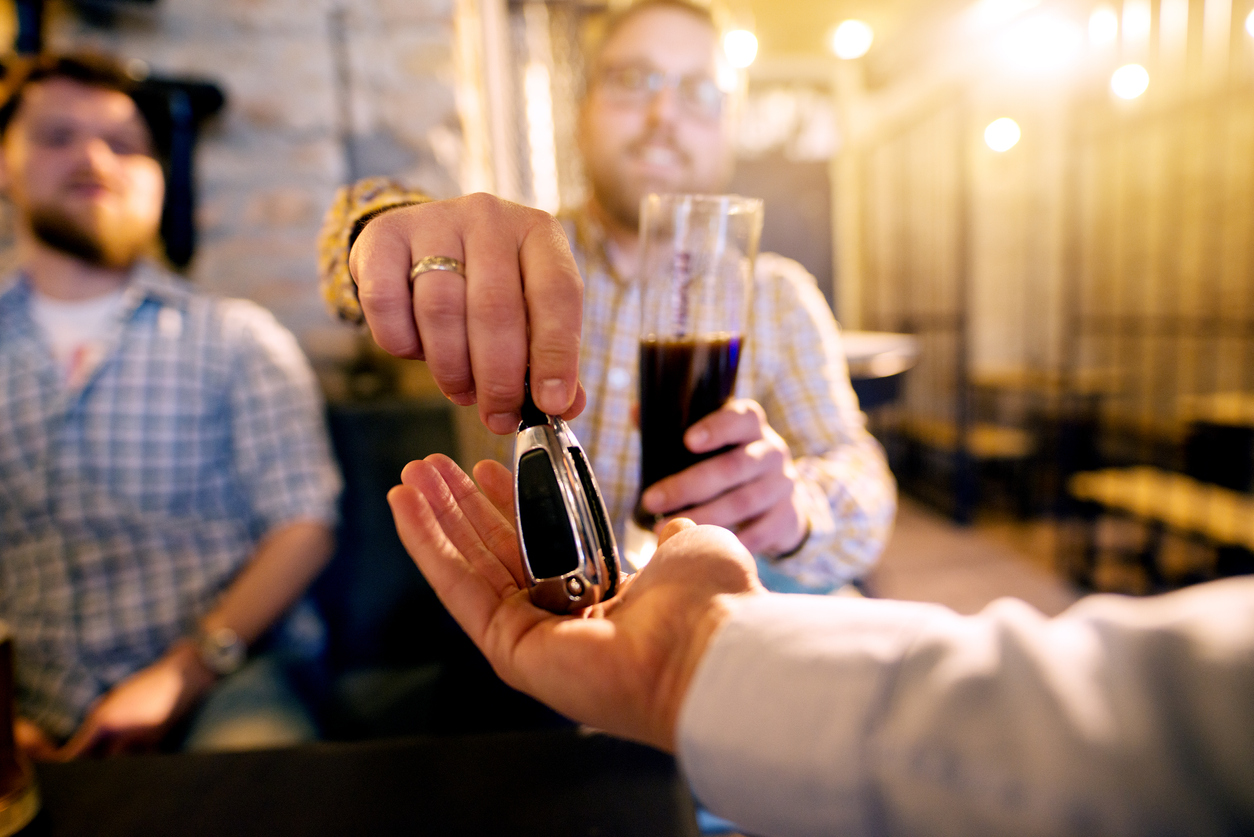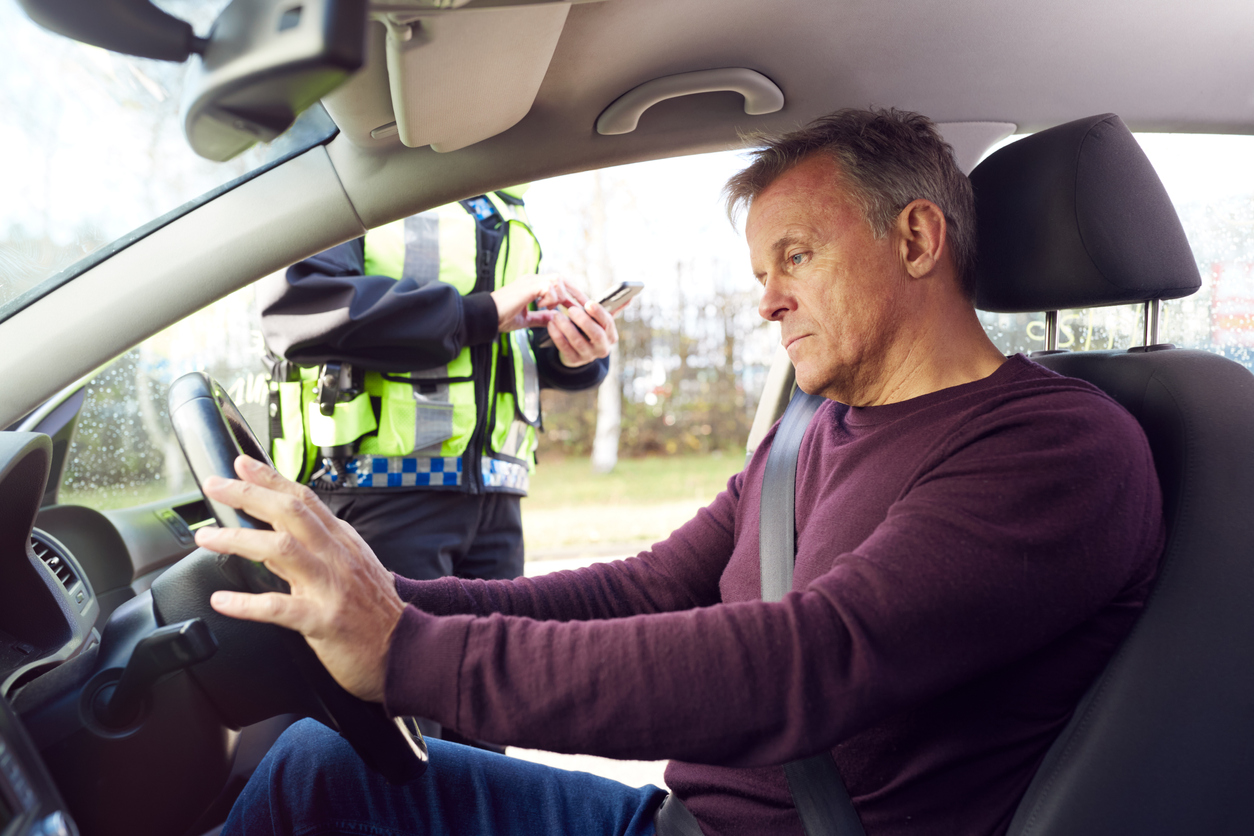
Does drinking alcohol affect your ability to drive? Well, even just one drink can increase your risk of a serious accident on the road, and the consequences can be devastating for everyone involved.
In this article, we explore everything there is to know about drinking and driving, including the risks and penalties involved.
How Does Drinking Alcohol Affect Your Ability to Drive?
In short, when alcohol is consumed, it changes the way the body and brain function and slows down reaction times.
Even just a small amount of alcohol can slow down someone’s ability to assess and process information and respond to events. It can also make individuals less alert and drowsy. Alcohol also affects the part of the brain that is responsible for judgement which again has an impact on how quickly someone can react to certain situations.
Alcohol can make people feel more confident and take more risks. This can increase the chance of a crash. Plus, studies have shown that even a small amount of alcohol can blur your vision too, make it difficult to concentrate and even cause double vision.
This can all make driving under the influence very dangerous as individuals can struggle to see how far away an object is, as well as judge the speed and distance of other vehicles and people. Alcohol can also make it harder for people to distinguish between colours which can make it difficult to understand traffic signals, signs and roadway markings.
All of these impairments can lead to serious accidents on the road, including death in the worst-case scenario. For this reason, it is crucially important you do not get behind the wheel if you have had a drink of alcohol.
Understanding Blood Alcohol Concentration (BAC)
Blood alcohol concentration, or BAC, is the measure of the unit that describes how much alcohol is in someone’s bloodstream. BAC determines how much alcohol there is in 100ml of blood. In England, Wales and Northern Ireland, the legal alcohol limit for driving is 80 ml of alcohol per 100 ml of blood. Alternatively, using a breath test, the legal limit is 35 micrograms of alcohol per 100 millilitres of breath. In Scotland, the limit is 50 milligrams of alcohol per 100 ml of blood or 22 micrograms of alcohol in 100 ml of breath.
BAC levels will differ from person to person too. The rate at which individuals process alcohol depends on metabolism, age, build, gender, food and drink intake and whether any other medication or drugs have been taken. Therefore, it isn’t easy to say what someone’s BAC levels will be after a certain number of drinks or after a few hours have passed.
What’s more, different BAC levels present different symptoms and side effects:
- 0% – This means the individual is completely sober.
- 02% – You may experience feelings of relaxation, an altered mood and a slight change in judgement.
- 05% – You may feel less alert and more uninhibited.
- 08% – You may find it harder to detect danger and could experience reduced muscle coordination and impaired judgement.
- 10% – Speech could be slurred, and reaction times will be delayed.
- 15% – You may experience sickness, loss of balance and more severe mood changes.
- 30% – You may experience sickness, drowsiness and confusion.
- 40% + – This is a potentially fatal BAC level and can result in alcohol poisoning, loss of consciousness and coma.
In the UK, BAC levels are typically measured with a breathalyser tool where a person blows into an apparatus. Blood tests and urine samples can also be used.
The Impact of Alcohol on Driving Skills
The biggest risk of drunk driving is causing alcohol-related accidents however, there are several other ways that driving under the influence can affect your driving. This includes having the inability to judge distance and speed, having reduced reaction times, suffering from blurry or impaired vision, and feeling drowsy or more likely to behave in an erratic way.
All of this can have an impact on your driving performance. For example, you may be more likely to swerve into lanes and oncoming traffic, or you may find it more difficult to control the steering. You may also be more likely to drive recklessly, including going over the speed limit and not identifying potential hazards and responding to traffic signals.
Legal Consequences of Drinking Alcohol and Driving
DUI laws in the UK are very serious. Individuals who are found to be doing so could face imprisonment, a driving fan and a fine. The specific penalty will depend on the magistrate who hears the case and also depends on the level of severity regarding the offence. Some individuals may be given the option to reduce their driving ban by completing a driver’s rehabilitation scheme course. However, the court must offer this for this to be an option.
Individuals found to be in charge of a vehicle while over the legal alcohol, limit may get 3 months imprisonment, up to a £2,500 fine and a driving ban. Those who are found driving and are above the legal limit may receive 6 months imprisonment, an unlimited fine and a driving ban for at least 12 months.
Those who refuse to provide a specimen for blood, urine, or breath to be analysed may receive 6 months imprisonment, an unlimited fine and a driving ban. Those who cause death by careless driving while under the influence may get life imprisonment, an unlimited fine, a ban of at least five years and an extended driving test before they get their licence back. As well as the above penalties, individuals may also experience higher car insurance costs as well as difficulties travelling to the likes of the USA.

Strategies for Preventing Drunk Driving
The truth is, there is no way to fully know how much alcohol will mean you are under the limit, as this can depend on a few different factors, including age, gender and metabolism.
There is also no way to get alcohol out of your system quickly. Even the day after drinking, you could still be affected and over the legal limit. Therefore, if you are driving, it is best to not drink any alcohol at all to prevent drunk driving risks and impaired driving consequences.
There are a series of effective strategies that you can do to prevent drunk driving too. This includes:
- Planning ahead – If you are going to drink alcohol, book a taxi or arrange a lift.
- Using designated drivers – If you go out with friends, take turns to be the driver and abstain from alcohol that night.
- Using public transport – Buses and trains run late into the night, so if you are out drinking, take a look at the timetables to find one that suits you.
If you have any questions about the information in this article or want some advice on alcohol consumption and preventing drunk driving, whether your own or someone you care about our friendly team is here to help. Phone today at 0151 268 6992 or fill out our contact form.
Posted on Friday, June 30th, 2023 at 11:25 am in Alcoholism, Latest News.






 Call Us
Call Us Contact Us
Contact Us